As parents, we welcome a baby into our lives and then eagerly await the first milestones.
Top of the list is their first steps and words, but equally important are their first smiles, giggles, and so much more.
These moments help track their emotional and social development, which is critical to your baby’s overall well-being.
One of those mini-milestones is when your little one begins to show you affection. It’s a heartwarming moment!
When do babies start to show affection?
Let’s take a look.

A Timeline of Milestones

Babies can communicate from the moment they are born – their cries mean they are hungry, wet, tired, and so on.
However, according to the University of Michigan Health, babies don’t start to express their feelings until they are about 1 month old, becoming more complex as they age.
-

Bold Male Pride – Baseball Trucker Cap Celebrating Masculinity
£18.00 Select options This product has multiple variants. The options may be chosen on the product page -

Dad Bod Appreciation Gift Mug
£14.00 Add to cart -

Dad Bod, Bad Jokes Structured Baseball Cap
£22.00 Select options This product has multiple variants. The options may be chosen on the product page
- 1 month: Alert, widened eyes with a rounded mouth can help your baby express their feelings.
- 2 months: Deliberate smiles, especially in social settings, to help engage with others.
- 3-6 months: Additional social skills develop, including laughing and cuddling, as well as other expressions of feelings, including anger, joy, surprise, disgust, and fear.
- 6-9 months: Bonds between parents, families and other caretakers develop and strengthen.
During this time, your baby will start to develop their personality, and they may express affection differently.
What Behaviors Indicate Affection

Our babies may not be able to talk yet, but they are showing us that they love and care for us in their ways. Here are some of the top behaviors to look out for.
Staring

Babies watch you. It’s one of the earliest things they can do, and it is how they learn so much about you and the world around them. They will start to mimic your behaviors and mannerisms, and when your baby can’t take their eyes off you, it is a sign of their love.
They are learning what comfort, love, and other emotions look like from you, so make sure you approach them all with kindness. Your baby will imitate you long after the moment has passed.
Smiling

Babies start to smile as early as 6 weeks, with their faces brightening up when they see their parents, siblings, and other caretakers they love. Your baby’s smiles indicate they are starting to bond with you, associating your presence with happiness and feeling good. These will only deepen with time.
Their smiles can mean they like simply being in your presence, or you can be doing something they find funny. People will often say smiles at a young age indicate gas and an involuntary reaction, but recent studies suggest this is not true.
Giggling
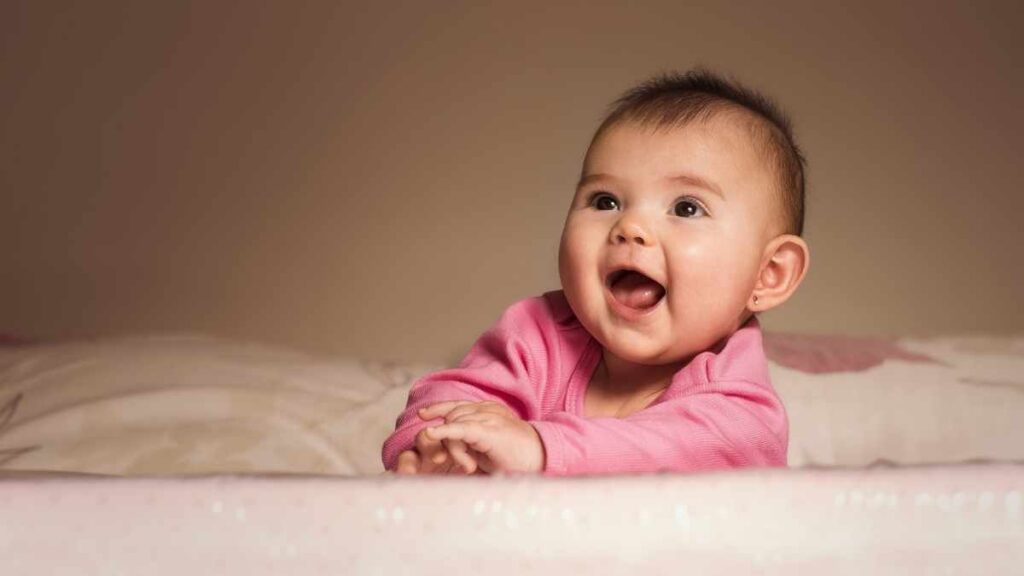
One of the best sounds in the world is your baby’s laugh, which can start as early as 12 weeks old. At 5 months, your babies will begin to laugh and exhibit behaviors that make others laugh deliberately. If your child grows up to be the class clown, this behavior can start as early as 20 weeks old.
This is nothing to worry about, though. These behaviors are a sign of joy and a great indicator of affection. Babies, like children and adults, want to make those they love happy, including making them laugh. They learn that when they laugh, you laugh.
Cuddling
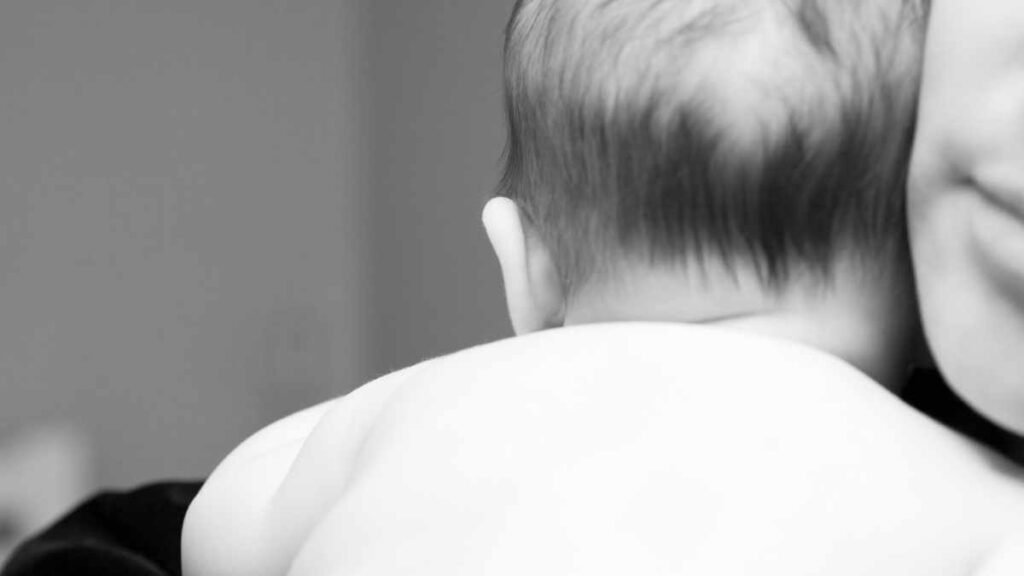
Babies find a lot of comfort through touch, and by 4 to 6 months, they should start to cuddle with you. Your baby may scoot over to cuddle with you, but you won’t get the open-armed cuddles until they develop more fine motor skills at around 9 months old.
Remember that skin-to-skin contact will help strengthen your bond with your baby. It helps build attachment between you and your baby, promoting calmness and relaxation for both the parents and the baby. This sense of contentedness helps build and strengthen affection over time.
Body Language
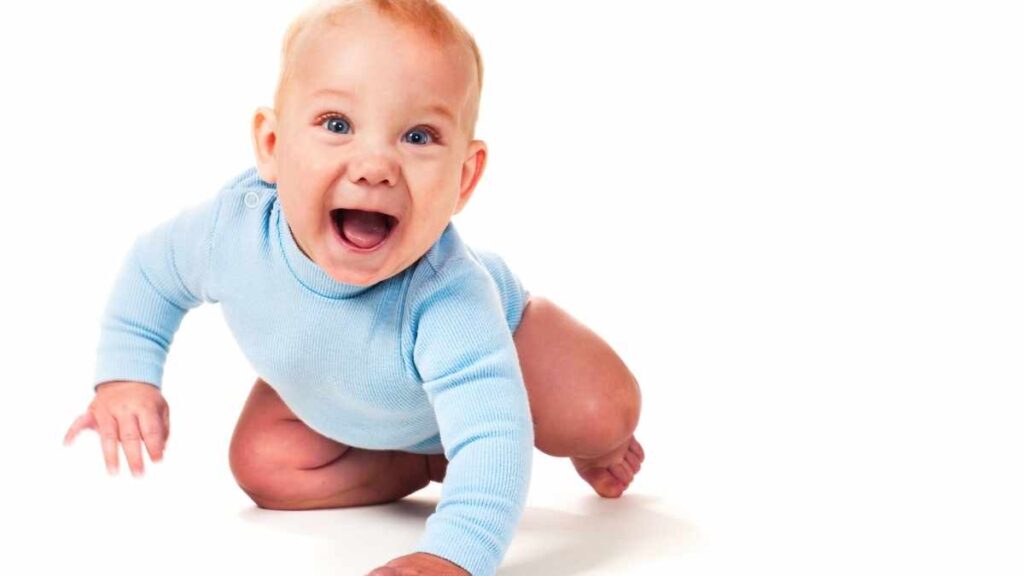
Pay attention to your baby’s body language. Things like open arms can indicate that they want you to pick them up, but it can also be a warning they want comfort. This behavior starts around 6 months old, and when they reach for you, it is a sign of affection.
Your baby can also start to pull away from you as they explore the world, but they will always look back at you to reassure themselves that you are there. They may even come back to you to be held or snuggled before they go off again to explore. This, too, is a sign of affection – no matter where they are or where they are going, you are their home.
Kissing
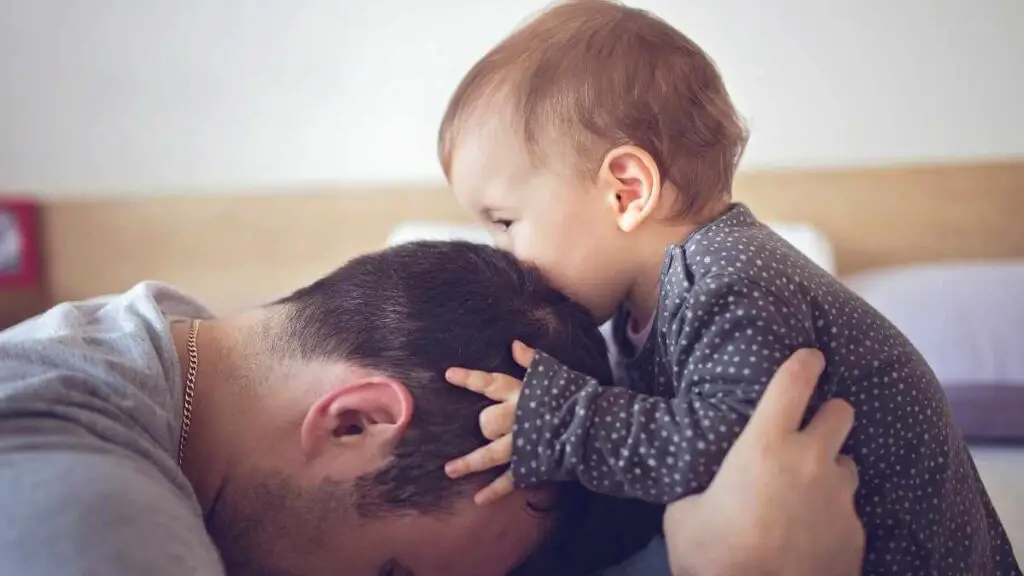
Babies watch how those around them show affection, and by 12 months old, your baby will start to give kisses – the big wet, sloppy ones that leave more drool than not, but these kisses are precious.
They show that your baby is paying attention and want to practice giving you kisses to show how much they care.
Over time, you will teach your baby how to appropriately express affection to their family members, giving kisses on the cheek, over the mouth, and so on.
Still, as your baby is learning to show others how much they care, kissing is an essential step in this development.
Separation Anxiety
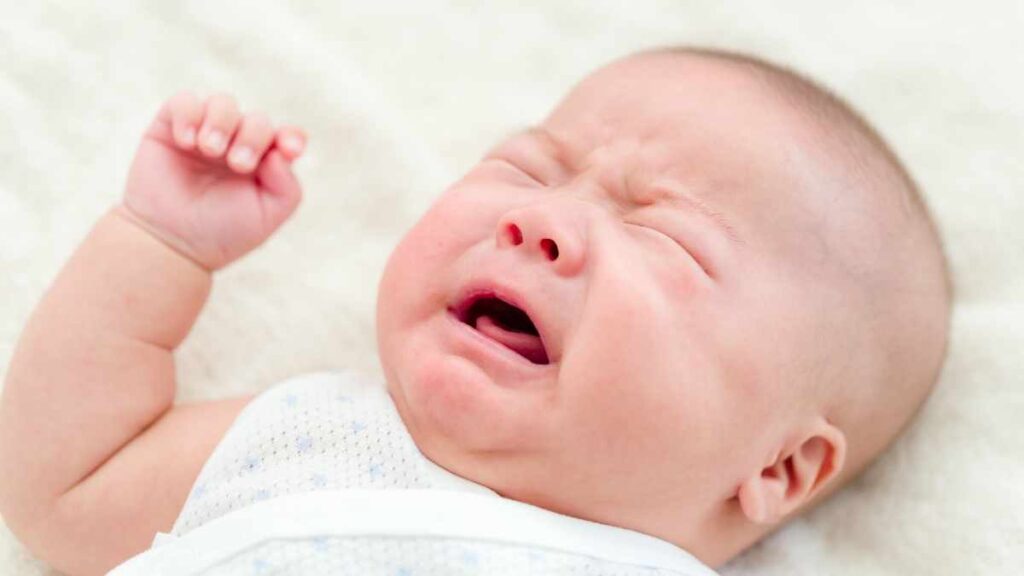
Your baby can develop separation anxiety starting at 12 months and lasting until 3 years old. While it can be stressful, this is a sign of affection.
They care for you so much that they always want you in their presence.
You’ll need to work with your baby on this behavior until they understand that you always come home. You can reassure your baby with words and with actions.
Over time, they will get used to their new routine, whether you’re leaving for work, dropping them off at daycare, and more.
So When Do Babies Show Affection?
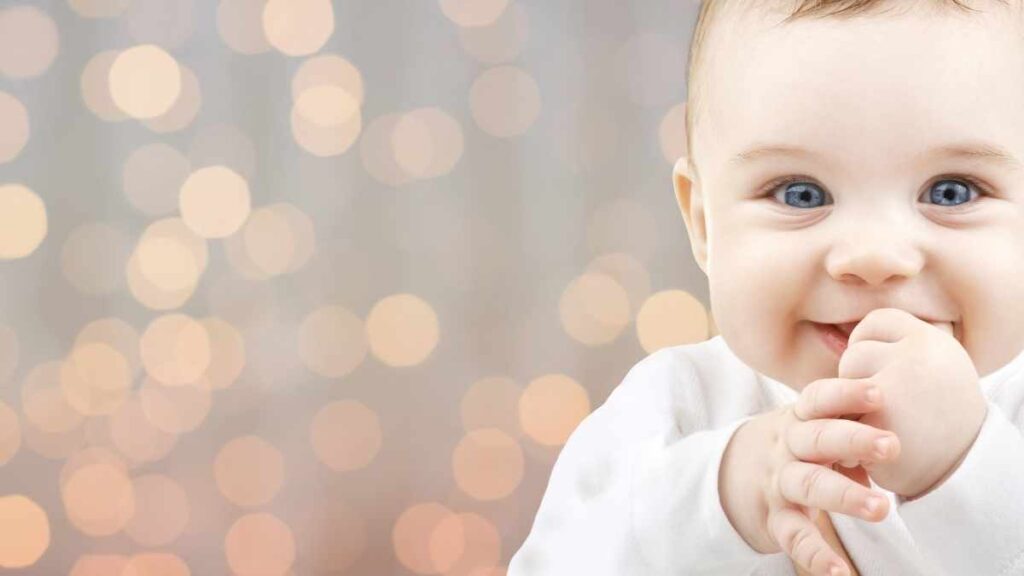
Babies can start to show affection as early as 1 month, though certain behaviors can begin to express themselves at 12 months and older. It depends on the type of affection, so be patient.
Your baby will learn to express themselves in ways they feel comfortable over time.
Conclusion
As they progress through the early stages of their life, your baby learns how to show affection. They will either learn from their actions, or they will learn by copying you. Babies learn different things at different times.
Your little one needs love and trust to be able to replicate that back on you.
This post has given you 7 signs of affection and has also given you an idea of when your little one will begin to show you affection.
Until then, know that your baby loves you.
Good luck!

